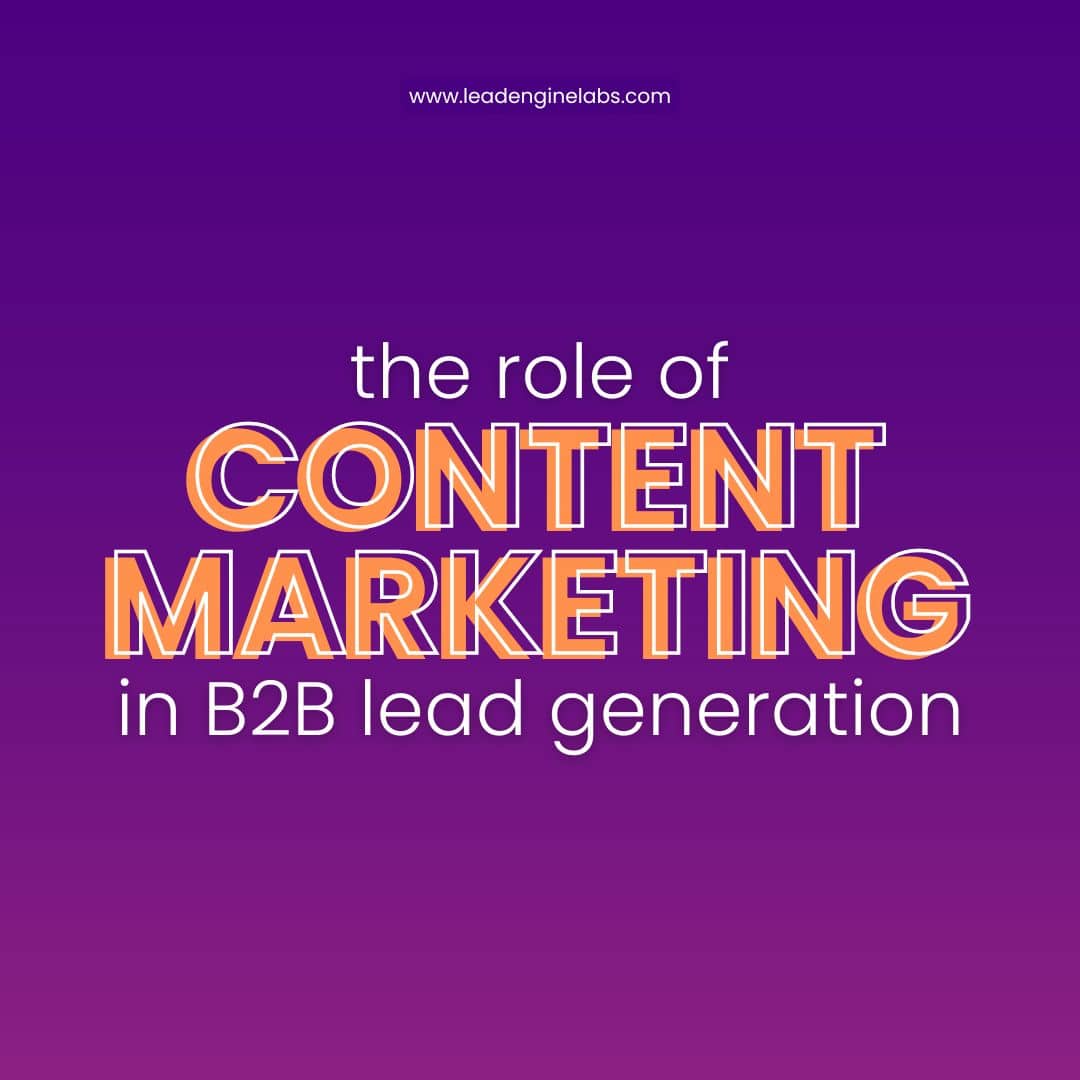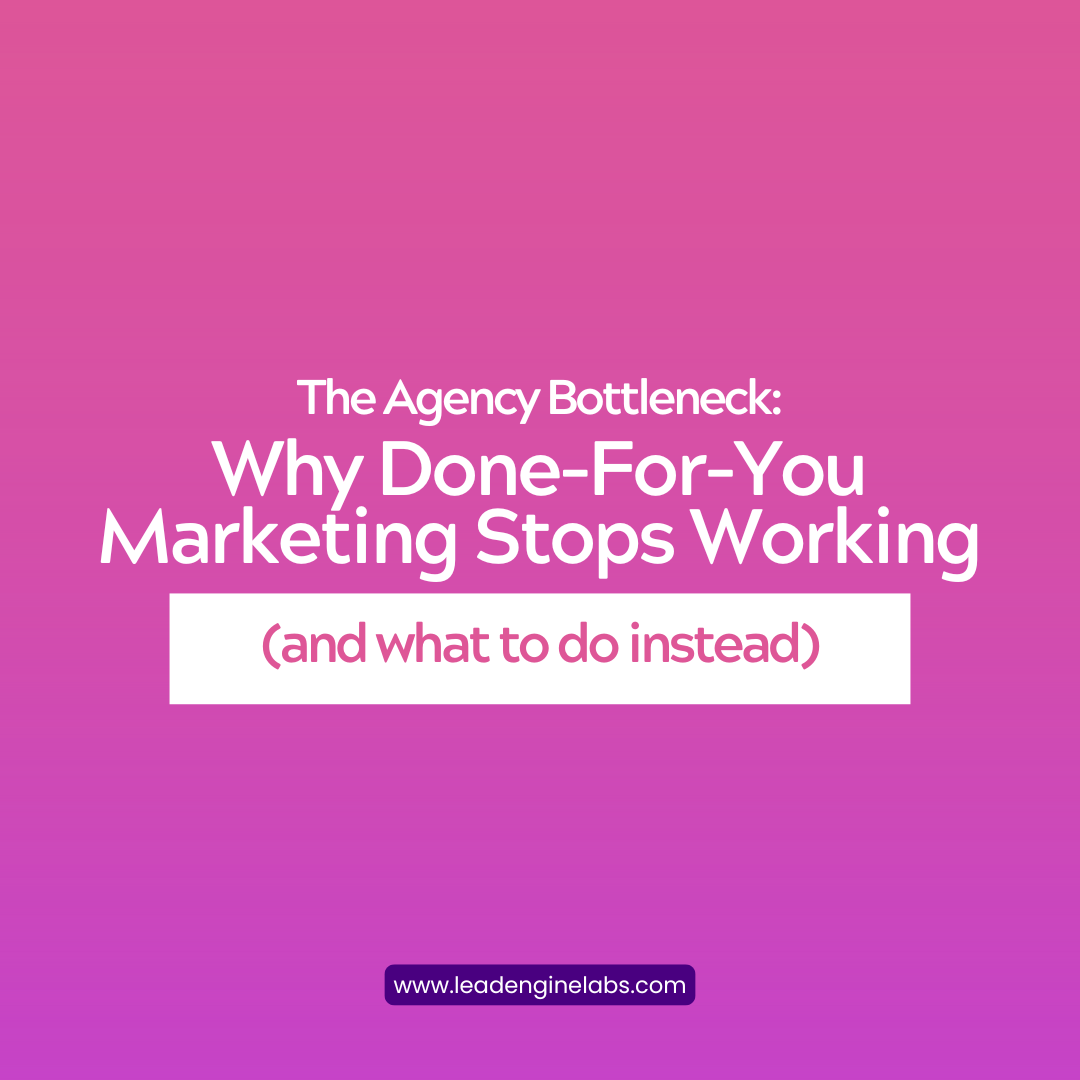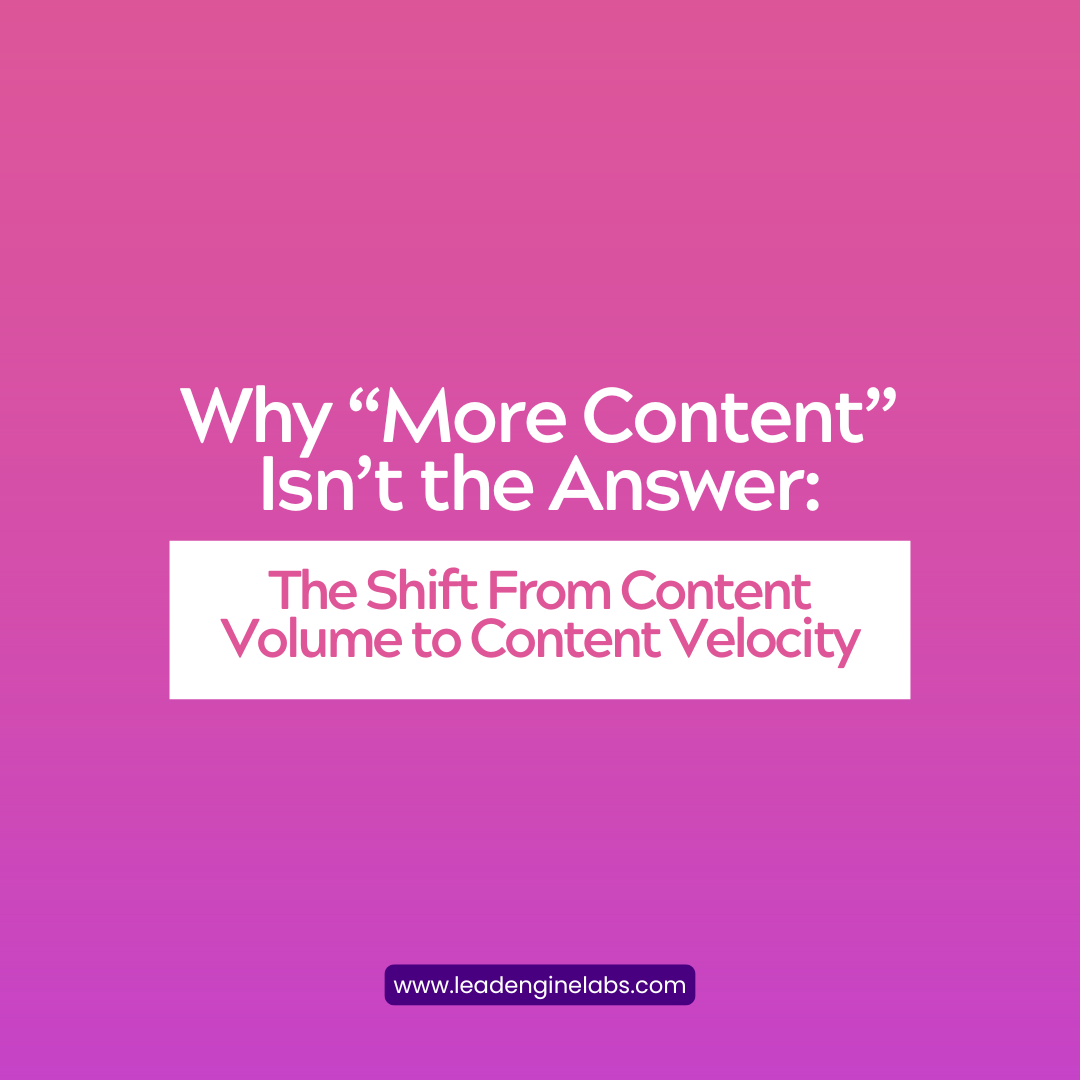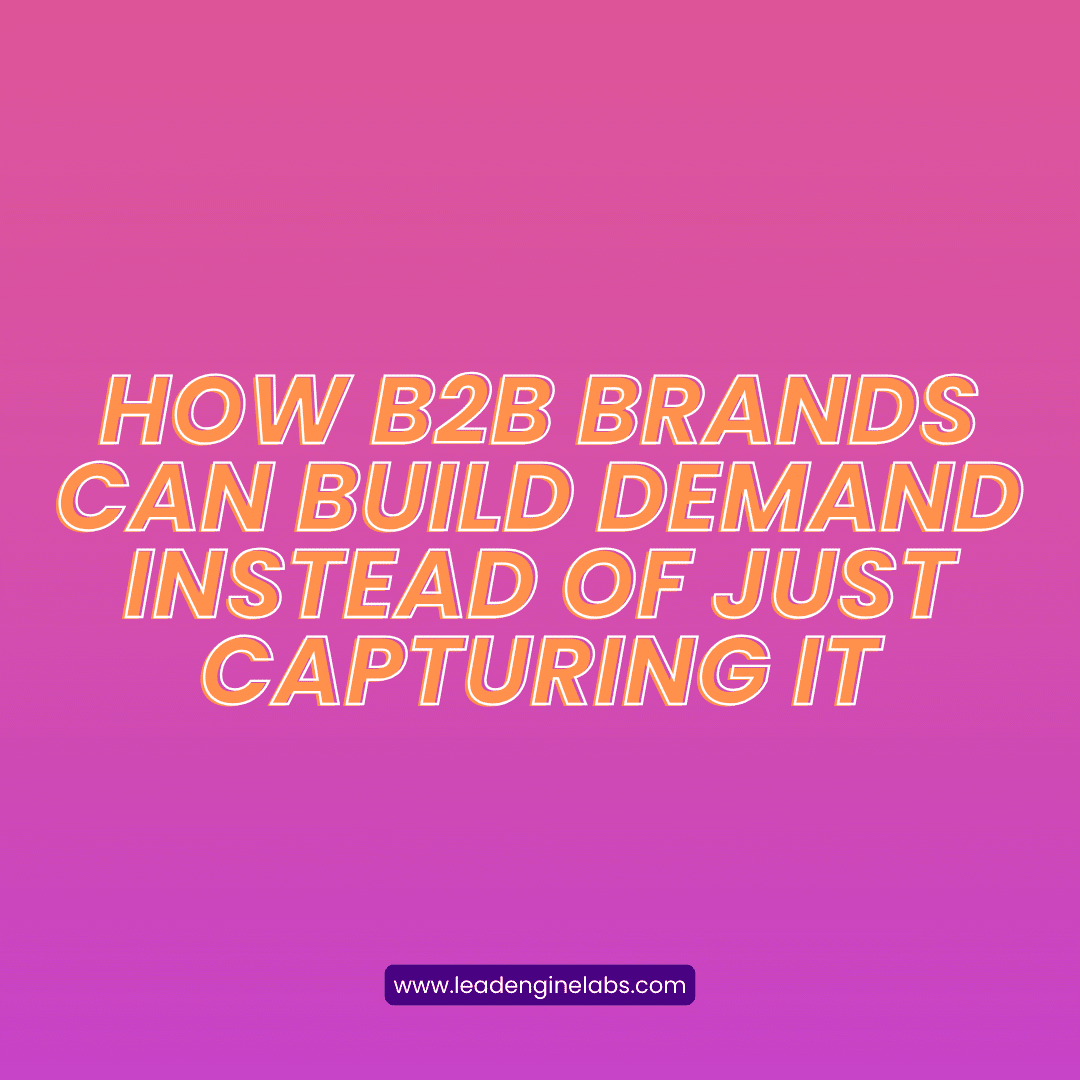Generating high-quality leads is a constant challenge. Enter content marketing – a powerful strategy that has revolutionized the way businesses attract, engage, and convert potential clients. This article explores the crucial role of content marketing in B2B lead generation and provides actionable insights to help you generate leads for your business effectively.
Why Content Marketing Matters for B2B
Content marketing has emerged as a cornerstone of successful B2B marketing strategies. Unlike traditional advertising, which often interrupts the audience, content marketing provides value upfront, establishing trust and credibility with potential clients. Here’s why it’s particularly effective for B2B lead generation:
- Long Sales Cycles: B2B purchases often involve complex decision-making processes and extended sales cycles. Content marketing allows you to nurture leads over time, providing valuable information at each stage of the buyer’s journey.
- Education-Driven Decisions: B2B buyers typically seek in-depth information before making a purchase. High-quality content can educate prospects about industry trends, challenges, and solutions, positioning your brand as a trusted authority.
- Multiple Decision Makers: B2B sales often involve multiple stakeholders. Content marketing enables you to address the concerns and interests of various decision-makers within an organization.
- Building Trust and Credibility: By consistently providing valuable, relevant content, you can establish your brand as a thought leader in your industry, fostering trust with potential clients.
- Cost-Effective Lead Generation: Compared to many traditional marketing methods, content marketing can be a more cost-effective way to generate leads for your business, especially over the long term.
Creating Valuable Content: Types of Content that Generate Leads
To effectively generate B2B leads through content marketing, it’s crucial to create content that resonates with your target audience. Here are some content types that have proven particularly effective for B2B lead generation:
- White Papers and eBooks: These in-depth resources provide comprehensive information on specific topics, positioning your brand as an industry expert. They’re excellent for capturing leads, as prospects are often willing to provide contact information in exchange for valuable insights.
- Case Studies: Showcasing real-world examples of how your product or service has helped other businesses can be a powerful tool for lead generation. Case studies provide concrete evidence of your value proposition.
- Webinars and Video Content: Live or recorded webinars and instructional videos can engage potential clients while providing valuable information. They’re also great for capturing leads through registration forms.
- Blog Posts: Regular, high-quality blog posts can attract organic traffic, establish your brand’s voice, and provide a platform for sharing industry insights. While they may not directly generate leads, they play a crucial role in the overall content marketing ecosystem.
- Infographics: Visual content can break down complex information into easily digestible formats. Infographics are highly shareable, increasing your content’s reach and potential for lead generation.
- Interactive Content: Tools like calculators, assessments, or quizzes can engage potential clients while providing personalized insights, making them powerful lead generation assets.
- Podcasts: Audio content allows you to reach busy professionals who might prefer to consume content on-the-go. Podcasts can help establish thought leadership and build a loyal audience.
Remember, the key to effective content creation is understanding your audience’s pain points, interests, and the questions they’re asking. Conduct thorough research and create buyer personas to guide your content creation efforts.
Distribution Channels: Reaching Your Target Audience
Creating great content is only half the battle. To effectively generate leads for your business, you need to ensure your content reaches your target audience. Here are some key distribution channels for B2B content marketing:
- Company Website and Blog: Your website is often the first point of contact for potential clients. Regularly updated blog content can improve SEO, drive traffic, and showcase your expertise.
- Email Marketing: Use your email list to distribute content directly to interested prospects. Segment your list to ensure you’re sending the most relevant content to each group.
- LinkedIn: As a professional networking platform, LinkedIn is invaluable for B2B content distribution. Share content on your company page, in relevant groups, and encourage employees to share on their personal profiles.
- Other Social Media Platforms: While LinkedIn is often the go-to for B2B, platforms like Twitter, Facebook, and even Instagram can be effective, depending on your target audience.
- Content Syndication: Partnering with industry publications or content syndication platforms can help extend your reach to new audiences.
- Paid Advertising: Use platforms like Google Ads, LinkedIn Ads, or industry-specific ad networks to promote your high-value content to targeted audiences.
- Guest Posting: Contributing content to respected industry publications can help you reach new audiences and establish thought leadership.
- Webinars and Virtual Events: Host or participate in online events to showcase your expertise and connect with potential leads in real-time.
Remember, the most effective distribution strategy will depend on where your target audience spends their time and how they prefer to consume content.
Content and SEO: Enhancing Visibility and Ranking
Search Engine Optimization (SEO) plays a crucial role in content marketing for B2B lead generation. By optimizing your content for search engines, you can increase its visibility and attract more potential leads. Here are some key SEO considerations for your content marketing efforts:
- Keyword Research: Identify and target relevant keywords that your potential clients are searching for. Use tools like Google Keyword Planner, SEMrush, or Ahrefs to find valuable keywords in your industry.
- On-Page SEO: Optimize your content by including target keywords in titles, headers, meta descriptions, and throughout the body of your content. However, ensure that keyword usage feels natural and doesn’t compromise the quality of your content.
- Quality Content: Search engines prioritize high-quality, relevant content. Focus on creating in-depth, valuable content that answers your audience’s questions and solves their problems.
- Link Building: Encourage reputable websites to link to your content. This can be achieved through guest posting, creating highly shareable content, or reaching out to industry partners.
- Technical SEO: Ensure your website is technically optimized for search engines. This includes having a mobile-friendly design, fast loading speeds, and a secure (HTTPS) connection.
- Content Structure: Use header tags (H1, H2, H3) to structure your content logically. This helps both readers and search engines understand the hierarchy of information in your content.
- Meta Descriptions: Write compelling meta descriptions that include your target keywords and encourage clicks from search results pages.
- Regular Updates: Consistently update your content to keep it relevant and valuable. This signals to search engines that your site is active and current.
By aligning your content marketing efforts with SEO best practices, you can improve your visibility in search results, driving more organic traffic and potential leads to your website.
Measuring Success: KPIs and Metrics to Track
To ensure your content marketing efforts are effectively generating leads for your business, it’s crucial to track and analyze relevant Key Performance Indicators (KPIs) and metrics. Here are some important metrics to consider:
- Lead Generation Metrics:
- Number of leads generated
- Lead conversion rate
- Cost per lead
- Lead quality score
- Content Performance Metrics:
- Page views
- Time on page
- Bounce rate
- Social shares
- SEO Metrics:
- Organic traffic
- Keyword rankings
- Backlinks acquired
- Engagement Metrics:
- Email open rates and click-through rates
- Social media engagement (likes, comments, shares)
- Webinar or event attendance rates
- Sales Metrics:
- Sales qualified leads (SQLs)
- Opportunity to customer conversion rate
- Customer lifetime value
- ROI Metrics:
- Content marketing ROI
- Revenue attributed to content marketing
Regularly review these metrics to understand what’s working and what isn’t. Use these insights to refine your content marketing strategy and improve your B2B lead generation efforts over time.
Strategies for Effective Content Marketing
Content marketing is a powerful tool for B2B lead generation, allowing you to attract, engage, and convert potential clients through valuable, relevant content. To maximize the effectiveness of your content marketing efforts:
- Understand Your Audience: Develop detailed buyer personas and tailor your content to address their specific pain points, challenges, and interests.
- Create a Content Strategy: Develop a comprehensive content strategy that aligns with your business goals and covers all stages of the buyer’s journey.
- Focus on Quality: Prioritize creating high-quality, valuable content that truly helps your audience. This will establish your brand as a trusted resource in your industry.
- Diversify Your Content: Experiment with different content types to engage your audience in various ways and cater to different learning preferences.
- Optimize for Search: Implement SEO best practices to improve the visibility of your content and attract more organic traffic.
- Promote Effectively: Develop a multi-channel distribution strategy to ensure your content reaches your target audience.
- Capture and Nurture Leads: Use lead magnets and marketing automation to capture and nurture leads generated through your content.
- Analyze and Iterate: Regularly review your content marketing metrics and use these insights to refine your strategy.
- Align with Sales: Ensure your content marketing efforts are aligned with your sales team’s needs and the overall sales process.
- Stay Current: Keep up with industry trends and emerging content formats to ensure your strategy remains relevant and effective.
By implementing these strategies and continuously refining your approach, you can leverage content marketing to generate a steady stream of high-quality B2B leads, driving sustainable growth for your business.





